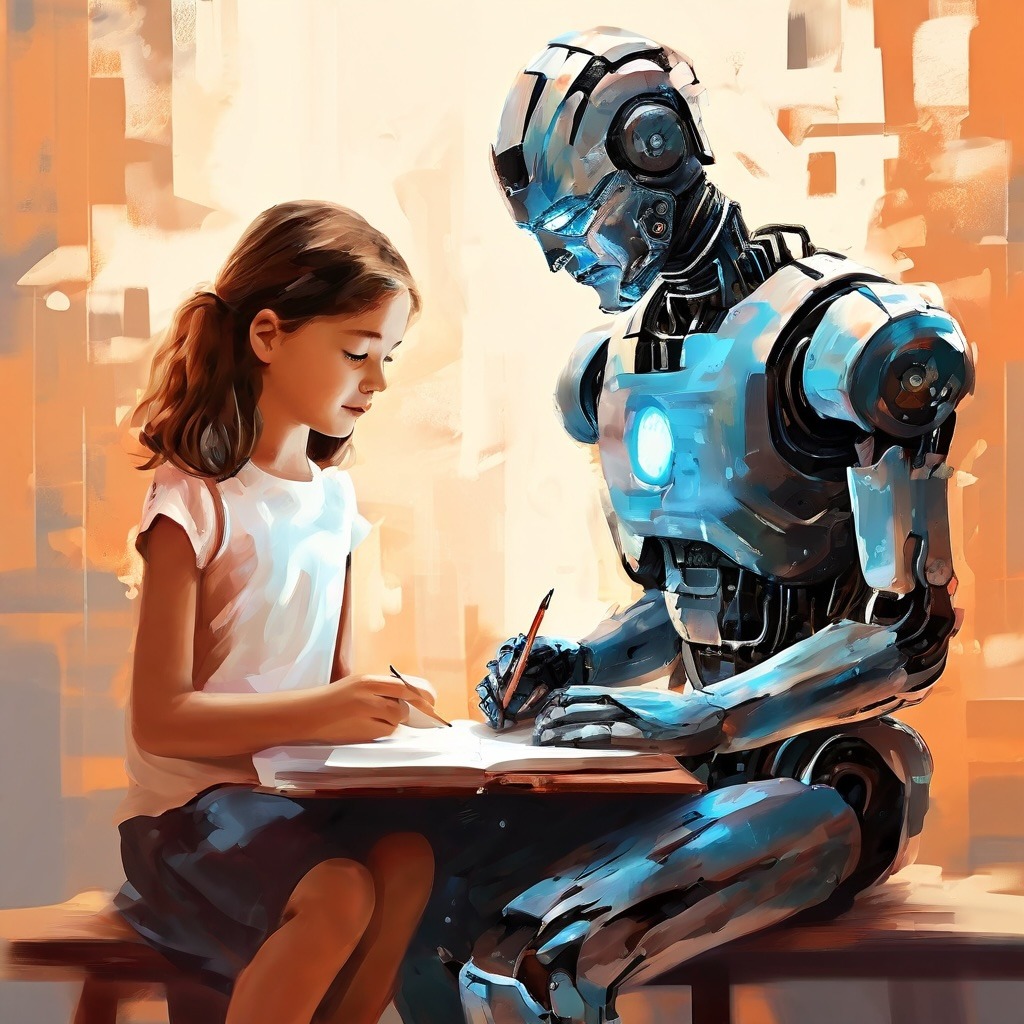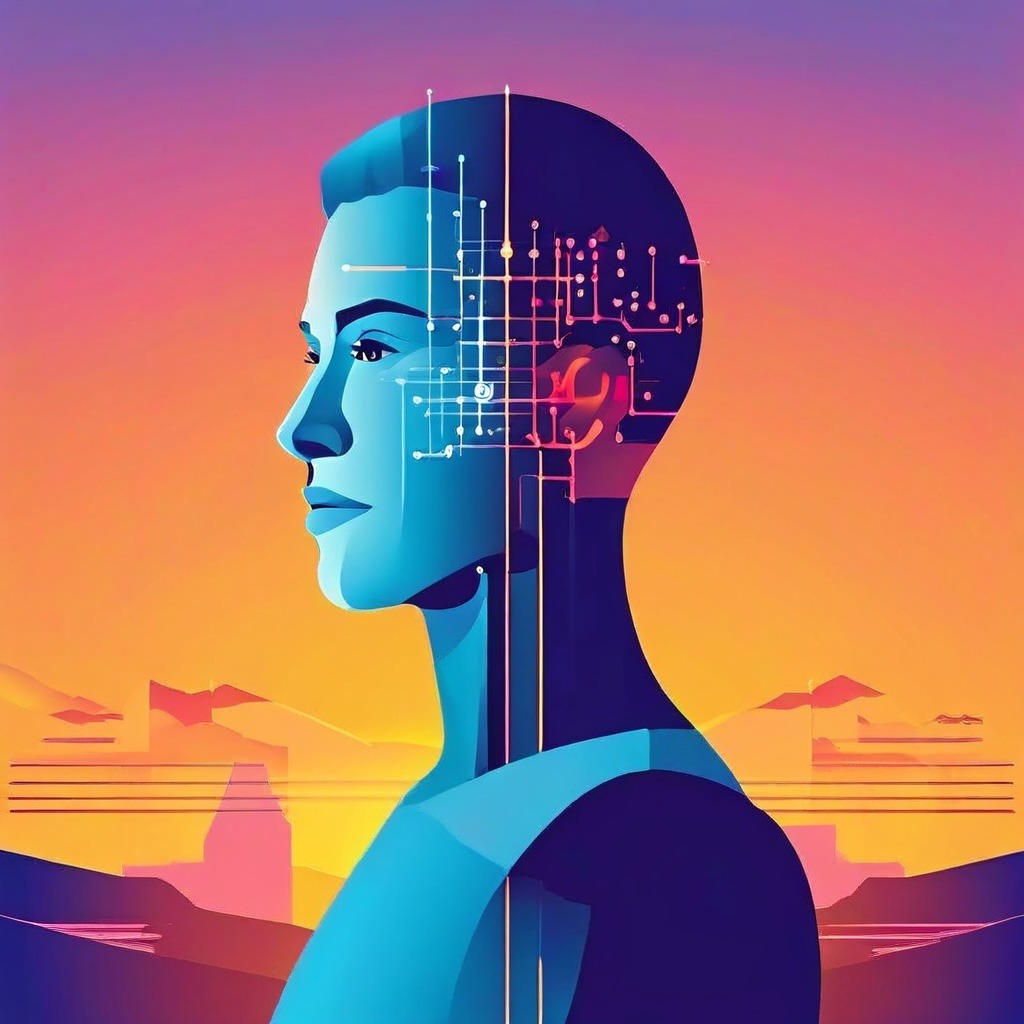The rapid development of Artificial Intelligence (AI) elicits both admiration and fear. Regardless of the emotions AI evokes, one question demands an answer: How can AI become a technology that is accessible and beneficial to all people?
To answer this, we must nuance our view of AI and discard simplistic statements. For example, the notion that people must adapt to and keep up with technological advances, the belief that AI is an existential threat, or the resigned acceptance that ordinary individuals must just cope with AI innovations.
Instead, we must remember that it is we, as people, who collectively shape our future. Hence, it’s crucial to spread a more nuanced understanding of the opportunities and consequences of AI usage. To prevent a small minority from monopolizing AI’s capacity to transform society, the technology must be democratized.
The key to disseminating technological advancements lies in making new technologies widely available. AI can then act as a unifying force rather than exacerbating divisions in today’s vulnerable societies.
The potential benefits are enormous. Economist and Nobel laureate Joseph Stiglitz noted in the 1990s that “a child anywhere in the world now has access to more knowledge via the internet than a student in the best schools in the industrialized world did 25 years ago.”
With equal and free access to AI, today’s children can benefit from the knowledge of the world’s brightest minds and apply what they learn.
Rather than vague promises like “AI can alleviate world hunger,” we should focus on the technology’s capacity to bring about gradual but meaningful improvements in people’s everyday lives.
AI technology is developing rapidly, and costs are decreasing, enabling the creation of smaller, more personalized models, similar to the early days of the internet when user creativity flourished.
Two years ago, Meta’s OPT-175B was the leading open AI model in France. Today, one of the leading models is Mistral 7B, which is forty times smaller and several times cheaper to use. Yet, this is just the beginning of a process resembling the rapid spread of telephones and televisions when they were new. However, AI technology development would benefit from a shift in focus from cost reduction to practical applications and risk management.
The control of AI technology can either promote equality or widen societal gaps, akin to previous technological revolutions.
A report from the International Monetary Fund warns that AI could exacerbate inequalities between those who can capitalize on the new technology and those left behind. Understanding new technology must encompass both system complexity and human ingenuity. By developing and disseminating AI systems that improve critical societal services, especially in underserved areas, these systems can become widely accessible. However, AI must be used with the explicit intent to reduce societal inequalities.
AI is likely to add value for consumers by reducing costs for some services. To ensure these benefits reach the majority, a dual strategy is needed: local access to services and redistributing surplus to those without access.
Who controls the technology can make AI either a powerful tool for equality or lead to wider societal gaps. Like previous technological revolutions, it will create new jobs and render some of today’s jobs obsolete.
A recent report from the International Monetary Fund warns that AI could widen gaps between those who can exploit the profits of new technology to enrich themselves and everyone else who falls behind.
Understanding new technology must encompass both the complexity of the systems and the power of human ingenuity. By developing and spreading AI systems with the potential to improve essential societal services, particularly in areas where they are lacking, we can make them broadly accessible. To succeed, AI must be used with the explicit intention of reducing inequality in society.
A first step is to shift the societal debate from mere awe over AI’s possibilities to concrete questions of “what” and “how.” It’s time to move beyond fascination with new technology and map out challenges where technology can be applied. Guidelines for incorporating AI into education and social systems globally are urgently needed.
Preparing society for an AI-altered future requires more than technological innovation. It necessitates ethical frameworks, updated legislation, and spreading AI knowledge within and between societies. Remembering that technology’s effects depend on how people use it is crucial in navigating a world fascinated by AI’s seemingly magical powers.
Today’s decisions will determine whether new technology will further enrich a few or develop AI as a positive force for societal change. New technologies must be harnessed to create a better, more inclusive future for everyone.





